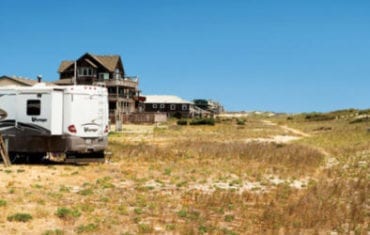Gullah Culture And Freedman
The Outer Banks seem to have a culture all its own and nowhere is that more true than along a small stretch of isles that hug the coasts from southern North Carolina to Georgia. These islands are home to the Gullah, a varied group of African Americans who descended from freed and escaped slaves and lived for a hundred years in relative isolation.
Many of the islands where they dwell have since become some of the best known tourist destinations throughout the Outer Banks, with Hilton Head Island, S.C., serving as a kind of cultural center for Gullah heritage. It’s a culture that’s fascinating and easily worth your time to explore and experience.
The Gullah Heritage Trail Tours offered on Hilton Head Island showcase the culture, language, religion, music, food and crafts unique to the Gullah people. The tours are conducted by bus with a guide who narrates the drive. Much of what makes the culture unique was the lack of road bridges extending from the mainland to the Outer Banks until the mid-20th century. As ex-slaves settled the islands, their West African culture was preserved and evolved as they mostly lived in isolation. Over time, the Gullah people quickly grew their own cultural identity.
The tours themselves take about two hours and start at 10 a.m. and 2 p.m. Tuesdays to Saturdays. On Sundays, one tour is held and starts at noon. Tickets for adults are $32 and for children 12 and under they are $15.
A stop in Mitchelville
Unique to Hilton Head Island is Mitchelville, site of the first self-governed settlement for freedmen in the United States. Enshrined today as Mitchelville Freedom Park, the site sits along Beach City Road and includes two museums, the Coastal Discovery Museum and the Gullah Heritage Museum. The Coastal Discovery Museum is open daily; the Gullah Heritage Museum is open by appointment.









